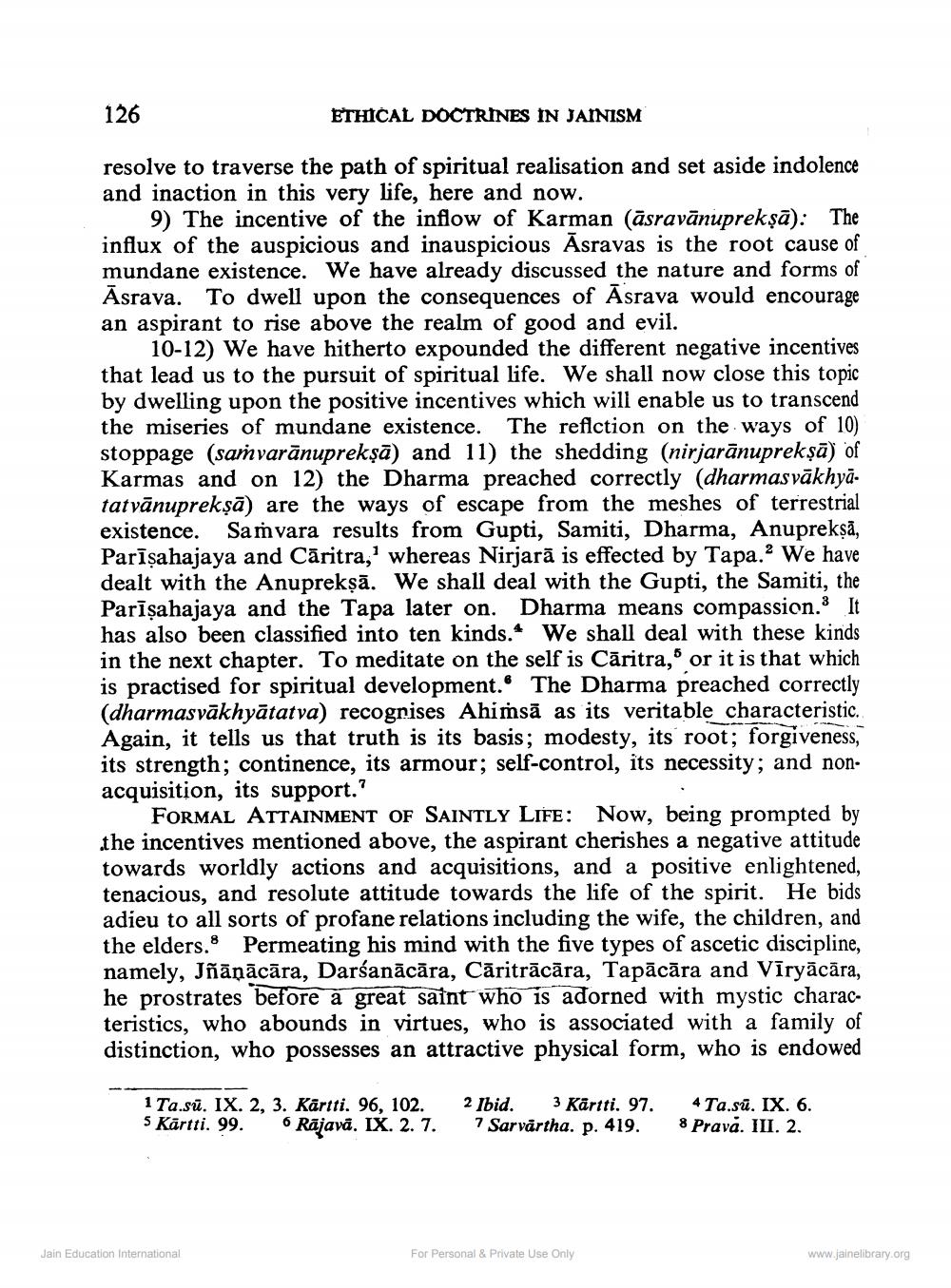________________
126
ETHICAL DOCTRINES IN JAINISM
resolve to traverse the path of spiritual realisation and set aside indolence and inaction in this very life, here and now.
9) The incentive of the inflow of Karman (āsravānuprekşā): The influx of the auspicious and inauspicious Asravas is the root cause of mundane existence. We have already discussed the nature and forms of Asrava. To dwell upon the consequences of Asrava would encourage an aspirant to rise above the realm of good and evil.
10-12) We have hitherto expounded the different negative incentives that lead us to the pursuit of spiritual life. We shall now close this topic by dwelling upon the positive incentives which will enable us to transcend the miseries of mundane existence. The refiction on the ways of 10) stoppage (saṁvarānuprekşā) and 11) the shedding (nirjarānuprekşā) of Karmas and on 12) the Dharma preached correctly (dharmasvākhyā. tatvānuprekşā) are the ways of escape from the meshes of terrestrial existence. Samvara results from Gupti, Samiti, Dharma, Anupreksā, Parīsahajaya and Cāritra, whereas Nirjarā is effected by Tapa.? We have dealt with the Anuprekşā. We shall deal with the Gupti, the Samiti, the Parīşahajaya and the Tapa later on. Dharma means compassion. It has also been classified into ten kinds. We shall deal with these kinds in the next chapter. To meditate on the self is Cāritra," or it is that which is practised for spiritual development. The Dharma preached correctly (dharmasvākhyātatva) recognises Ahiṁsā as its veritable characteristic. Again, it tells us that truth is its basis; modesty, its root; forgiveness, its strength; continence, its armour; self-control, its necessity; and nonacquisition, its support.?
FORMAL ATTAINMENT OF SAINTLY LIFE: Now, being prompted by the incentives mentioned above, the aspirant cherishes a negative attitude towards worldly actions and acquisitions, and a positive enlightened, tenacious, and resolute attitude towards the life of the spirit. He bids adieu to all sorts of profane relations including the wife, the children, and the elders. Permeating his mind with the five types of ascetic discipline, namely, Jñānācāra, Darsanācāra, Căritrācāra, Tapācāra and Vīryācāra, he prostrates before a great saint who is adorned with mystic characteristics, who abounds in virtues, who is associated with a family of distinction, who possesses an attractive physical form, who is endowed
1 Ta.sū. IX. 2, 3. Kartti. 96, 102. 5 Kartti. 99. Räjavå. IX. 2. 7.
2 Ibid. 3 Kärtti. 97.
7 Sarvårtha. p. 419.
Ta.sū. IX. 6. 8 Prava. III. 2.
Jain Education International
For Personal & Private Use Only
www.jainelibrary.org




